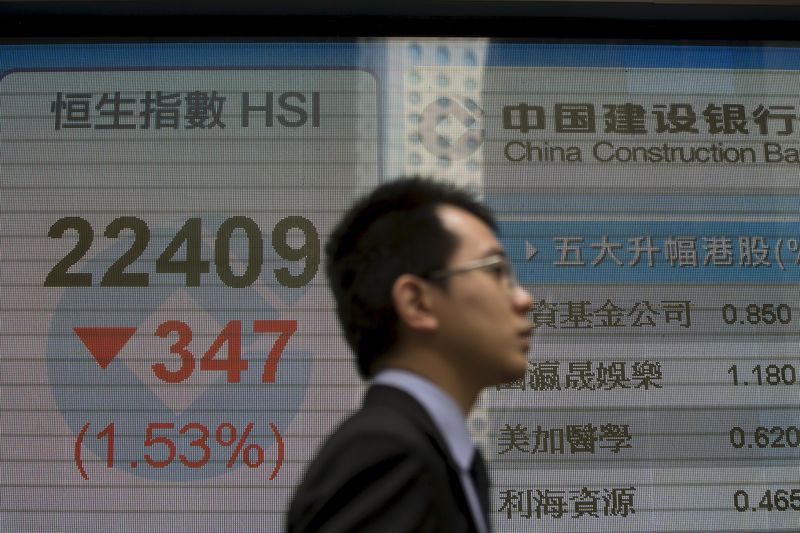This post was originally published on this site
https://i-invdn-com.investing.com/news/LYNXNPEB7K0VH_M.jpg
Investing.com – Asia Pacific stocks were mostly down on Thursday morning, with investors digesting data from Japan and Australia. Tighter regulations for Macau’s casino operators also triggered a global selloff.
Japan’s Nikkei 225 edged down 0.14% by 9:47 PM ET (1:47 AM GMT). Japanese trade data released earlier in the day showed that exports grew 26.2% year-on-year and imports grew 44.7% year-on-year in August. The trade balance was at a deficit of JPY635.4 billion ($5.8 billion).
South Korea’s KOSPI was down 0.48%.
In Australia, the ASX 200 gained 0.69%. Jobs data released earlier in the day showed that the employment change contracted by 146,300, while the full employment change contracted by 68,000, in August. The unemployment rate was 4.5%.
Across the Tasman Sea, New Zealand’s GDP grew a better than expected 2.8% quarter-on-quarter and 17.4% year-on-year in the second quarter.
Hong Kong’s Hang Seng Index slid 1.84%.
China’s Shanghai Composite was up 0.44% while the Shenzhen Component fell 0.61%, with Chinese stocks in the U.S. sliding for a sixth day. U.S. casino firms with ties to Macau saw their shares tumble as Macanese operators face tighter regulations. Investors also continue to monitor developments in China Evergrande Group’s (HK:3333) debt situation.
The global economic recovery from COVID-19 was also on investors’ minds as countries such as China and Singapore deal with fresh outbreaks. The United Nations said the global economy is expected to undergo its fastest recovery in almost five decades in 2021, but also warned that inequality between developed and developing countries is widening.
“Global economic growth remains above trend, albeit past peak levels, supported by central bank liquidity, progress on vaccine distribution, and continued reopening momentum despite the spread of the delta variant,” T.Rowe Price said in its latest global asset allocation report. The report added that a “deceleration” phase of the market cycle has begun, characterized by slowing economic and earnings growth.
Meanwhile, U.S. President Joe Biden’s economic agenda took a significant step forward after the House of Representative’s Ways and Means Committee approved the biggest tax hikes in a generation on Wednesday. The committee approved $2.1 trillion in new levies that mostly focused on corporations and the wealthy.

